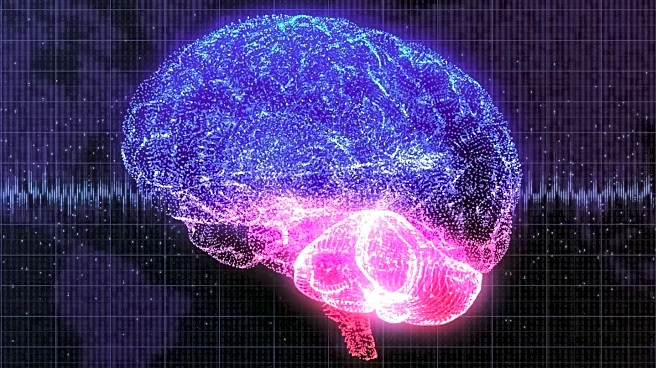What's Happening?
Researchers from Imperial College London and the University of Surrey have identified a precise 'tipping point' in brain activity that occurs minutes before sleep onset. Using EEG data from thousands of volunteers,
the study found a sudden change in electrical activity approximately 4.5 minutes before falling asleep. This discovery challenges the notion of sleep as a gradual process, suggesting instead that it is a rapid transition. The research team developed a model that can predict sleep timing with 95% accuracy, offering potential applications in diagnosing sleep disorders and monitoring anesthesia. The findings provide new insights into the sleep process and its implications for brain health.
Why It's Important?
The ability to predict sleep onset with high accuracy has significant implications for healthcare and technology. It could lead to improved diagnosis and treatment of sleep disorders such as insomnia and excessive daytime sleepiness. Additionally, the research may inform the development of technologies to prevent drowsy driving, enhancing road safety. The findings also have potential applications in monitoring anesthesia during medical procedures, ensuring patient safety. By advancing understanding of sleep mechanisms, the study contributes to broader efforts to improve brain health and cognitive function.











